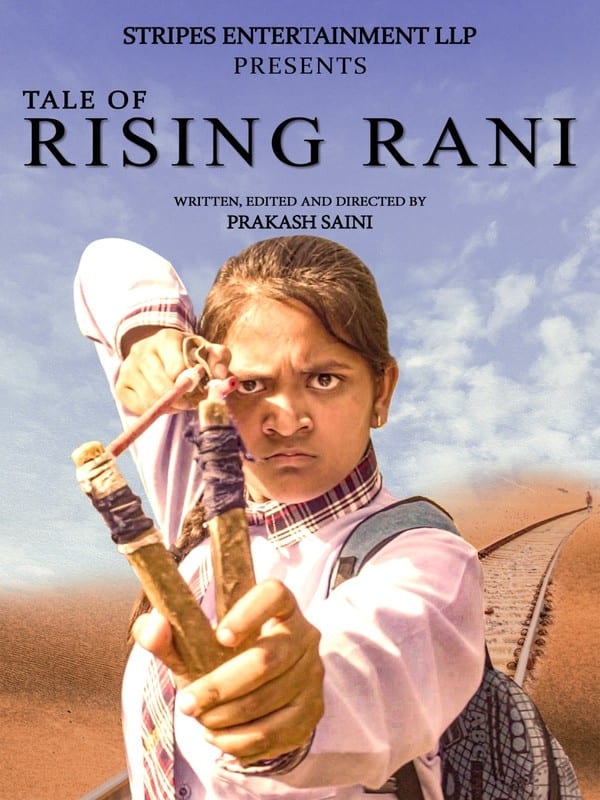The film, featuring a strong female protagonist, revolves around the practice of marrying off young girls instead of letting them pursue education. Ashok Kumar Sharma, its producer, tells us more about Tale of Rising Rani.
The film, Tale of Rising Rani is being received warmly at international film festivals. Written and directed by Prakash Saini, the film features a strong female protagonist and revolves around the practice of marrying off young girls instead of educating them and the extrajudicial bodies in India’s villages which keep such conventions alive.

The film, which resonates with Prime Minister Narendra Modi’s vision of “Beti Bachao, Beti Padhao”, has received critical acclaim at film festivals around the world, including awards won at the Indie Meme Festival in Austin, the 53rd WorldFest-Houston, London Independent Film Awards, World Film Carnival, Singapore and the Oniros Film Awards in Italy. In an exclusive chat with G20, Ashok Kumar Sharma, producer of the film, spoke about the fact that while the West always wants to know what happens in India, India should also be making itself more aware of what goes on in its interiors. Excerpts:
Q. How did the film come to be? Is it based on any real incidents?
A. The story came from the vision of the director; he had been planning it for a long time. Nobody had been ready to produce it but I stepped ahead and sanctioned it because I liked the concept. The themes of marrying women early and women’s education are common in films, but this one also looks at the wrong judgments which are made in villages in India and followed by people, for instance, women being forced to marry their rapists.
Q. How was casting and shooting done for the film?
A. The film was shot in just 30 days in May last year, but it took about two months before that to train people to play the characters. Except for Anil Yadav, nobody in the film is an actor – all of them are locals and laymen who were taught how to face the camera
Q. The film received a great response at these film festivals. How was it seeing ‘Rising Rani’ travel to all these places?
A. It was good. We showed at several festivals and even won awards like the Best Actor prize. The film is based on social material so people were interested to know what is going on in India.
Q. How relevant would you say this film is?
A. This film is important not just for foreign audiences but also for Indians living in metropolitan cities. While the West wants to know about things like these, all of us, in cities and other developed areas, should also know what is happening in rural areas, why we have programs like ‘Beti Bachao, Beti Padhao’. And this is not only about Hathras. This happens in many places, where people marry off girls just as they complete 11th-12th standard. They think it is the right thing to do, a very righteous thing to do. However, these girls are not given a choice regarding their partner or the age at which they want to be married – they are not even mentally developed enough to be married off.
Q. What makes cinema an effective tool for furthering causes like women empowerment?
A. Films can carry a message to its audiences through entertainment. So, while they are entertaining people, they also make them aware about something they do not know about. That is what makes it a good platform.
Q. But what about the misogyny prevalent in some mainstream and regional cinemas?
A. We cannot tackle everything and everybody. The audience is the main master here – they decide what they want to watch. And a producer who puts in 500 crore Rupees in a commercial movie would obviously want returns.
Q. Do you plan to take ‘Rising Rani’ to the theatres or release it on OTT platforms?
A. I would have liked it to be released in theatres but it is difficult because the film does not have a star cast. I am trying to go for OTT platforms. But what I really want is to show it on a platform like Doordarshan so it can reach everyone. I am in touch with DD. But, if nothing works out, it can always come out on our YouTube channel, Stripes Entertainment LLP.
Q. What are you planning on next?
A. There are short films – our channel already has five of them. I am interested in producing a psychological thriller too. And I am always searching for films with a good message.

